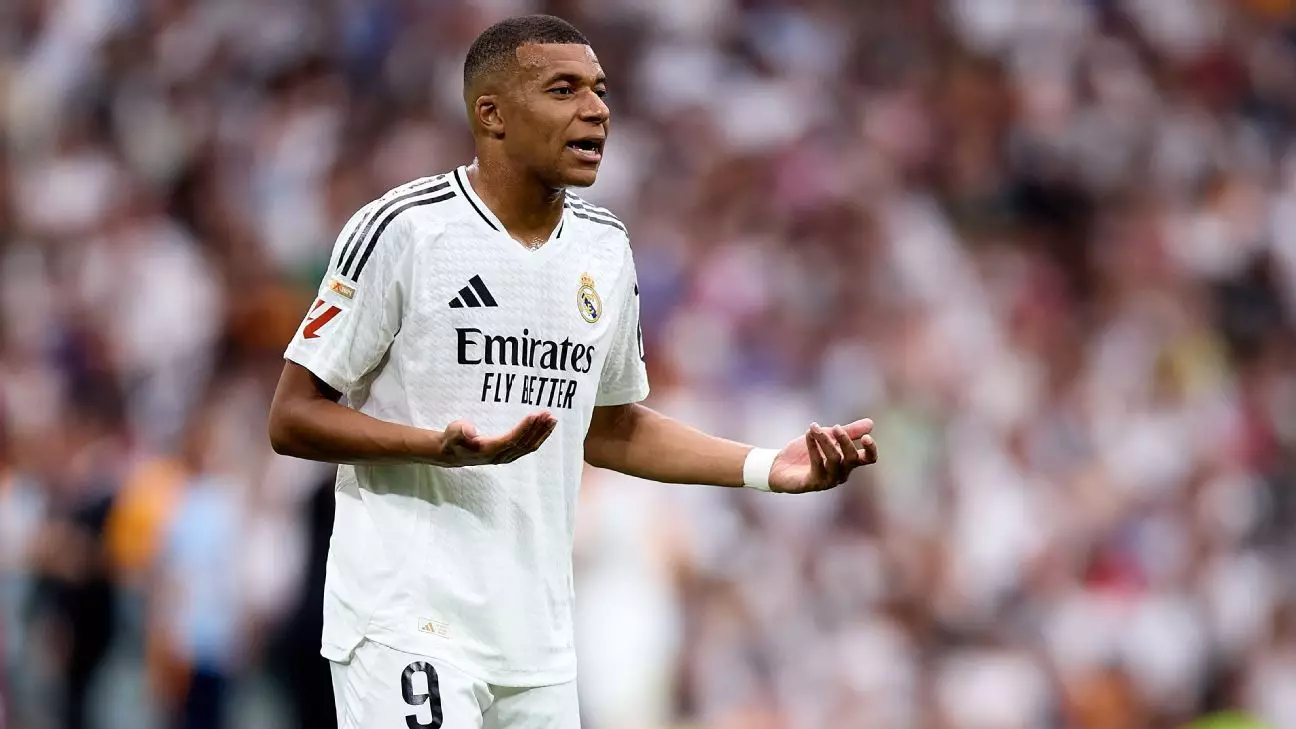In the world of football, the balance between club commitments and national responsibilities often becomes a point of contention. Recently, France’s national team coach Didier Deschamps and midfielder Aurélien Tchouaméni found themselves embroiled in controversy surrounding Kylian Mbappé’s absence from the national squad during the latest international break. Mbappé’s thigh injury, sustained during Real Madrid’s thrilling 3-2 victory over Alavés on September 24, raised questions about his fitness for international fixtures against Israel and Belgium. Initially expected to be sidelined for about three weeks, his situation was further complicated by his subsequent return to the pitch for Madrid’s Champions League clash with Lille and a starting position against Villarreal.
Critics within the French media speculated that Mbappé prioritized club commitments over his national duties, igniting discussions about loyalty amidst rising pressures from club managers and fans alike. Deschamps’s decision to leave Mbappé off the squad, citing that the player was “not at 100%”, only intensified discussions about the relationship between player health and national expectations. The coach affirmed that the decision was informed by the available data, underscoring the complexities involved in assessing player readiness.
Deschamps and Tchouaméni Respond to Criticism
Deschamps’s comments in a press conference sought to quell rumors of Real Madrid exerting pressure on Mbappé. He dismissed the notion, insisting that the decision regarding Mbappé’s availability was solely his and not influenced by the club. This statement reflects a broader concern regarding the influences clubs have over international selection processes, as many national team coaches struggle to manage the expectations set by club managers who pay significant salaries to their star players.
Tchouaméni, who was chosen to don the captain’s armband for the upcoming match, expressed solidarity with his teammate while clarifying that there was no undue pressure from Real Madrid regarding Mbappé’s participation in the national team. His affirmation that “there are physical problems” was crucial, emphasizing that injuries should take precedence over any external pressures. Such comments provide valuable insight into how players perceive the expectations placed upon them, illustrating an important aspect of team dynamics wherever loyalties are tested.
Media Commentary and Player Image
Beyond the pitch, the French squad’s behavior has also come under scrutiny from commentators and former players. Liverpool’s Ibrahima Konaté stirred conversations when he arrived at the national team base in a hood that covered his face, prompting a caustic reaction from ex-France international Jérôme Rothen, who characterized the players’ sartorial choices as a “circus.” This commentary demonstrates how public perceptions of professionalism in sports extend beyond mere performance, with aspects such as player conduct during international duty shaping broader narratives.
Responding to criticism, defender Jules Koundé’s remarks on social media highlighted the cultural differences in how athletes express themselves. Koundé’s playful dismissal of the criticism emphasizes how contemporary football merges with personal identity and can render traditional standards of professionalism somewhat rigid. Furthermore, such dialogue fosters a counter-narrative in football where self-expression is being increasingly embraced, promoting a deeper understanding of athletes as individuals.
The situation surrounding Kylian Mbappé serves as a microcosm of the broader struggle athletes face in balancing the allure of club football with their obligations to their national teams. While the voices of coaches like Deschamps and teammates such as Tchouaméni attempt to foster harmony and understanding within this dichotomy of responsibilities, media scrutiny remains an ever-looming challenge.
As football evolves, the implications of injuries, player health, and the expectations from clubs will undoubtedly continue to shape discourse around international duty and personal commitment. Ultimately, the case of Mbappé not only reflects the individual struggles of a player but also highlights the evolving landscape of modern football, where loyalty, health, and visibility are threaded into an intricate tapestry of professional sport.

